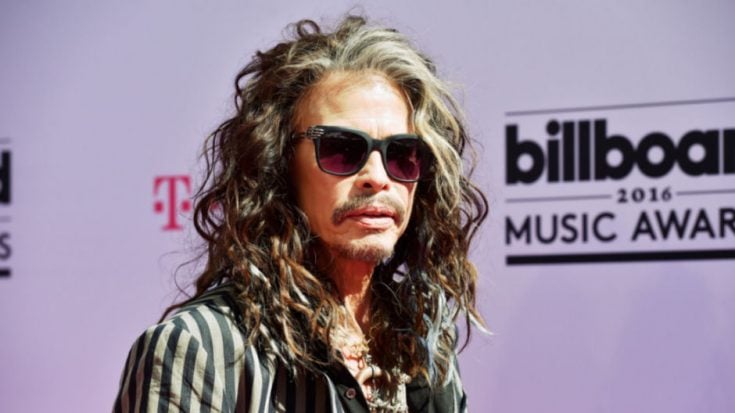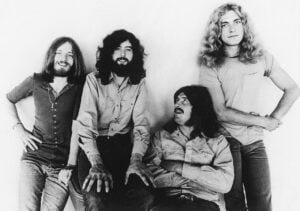7 ’80s Hits That Are Now Considered Offensive Today

Image via inquisitr.com
The 1980s gave us some of the most iconic music in history. But as we look back with fresh perspectives, some hits that defined the decade don’t quite hold up. Lyrics that once seemed harmless now carry undertones of insensitivity or worse. With a more inclusive lens in the present era, here’s a look at seven classic ’80s songs that might make us cringe today, even as they remain pop culture staples.
“Don’t Stand So Close to Me” by The Police (1980)
This chart-topping hit might sound like a catchy tune about forbidden attraction, but the lyrics tell a troubling story. The song narrates a teacher’s thoughts about a student’s romantic feelings for him: “Young teacher, the subject of schoolgirl fantasy.” It even references Lolita, Vladimir Nabokov’s novel about a man preying on his stepdaughter.
Sting, the band’s lead singer and a former teacher has clarified that the song isn’t autobiographical. “It’s certainly not biographical,” he told People in 2023. “Nothing happens in the song; it’s just the danger of something happening.” Despite this, Sting no longer performs the track live, saying, “In the current climate, I don’t sing that live. People … will say, ‘Oh, it’s about you.’ And of course, it’s not.”
“Dude (Looks Like a Lady)” by Aerosmith (1987)
Inspired by Steven Tyler mistaking Mötley Crüe’s Vince Neil for a woman, this Aerosmith anthem hasn’t aged well. The lyrics perpetuate outdated stereotypes, painting a caricature of gender identity: “She had the body of a Venus/Lord, imagine my surprise.”
Desmond Child, a co-writer, shared that guitarist Joe Perry initially worried about alienating the LGBTQ+ community. Child convinced him otherwise: “I’m gay, and I’m not insulted. Let’s write this song.” He defended it as “a very accepting song” with the moral to “never judge a book by its cover.” Still, in 2023, many see it as perpetuating harmful tropes rather than celebrating diversity.
“Money for Nothing” by Dire Straits (1985)
Dire Straits’ “Money for Nothing” was a massive hit, but its lyrics contain a slur for gay men, used three times to mock a pop star: “See the little [expletive] with the earring and the makeup?/Yeah buddy, that’s his own hair.”
Frontman Mark Knopfler recalled facing backlash even in the ’80s. A London gay newspaper editor objected to the lyrics, prompting Knopfler to replace the slur in live performances. While some argue the song satirizes bigotry, its use of offensive language makes it largely unplayable on modern airwaves.
“One in a Million” by Guns N’ Roses (1988)
Guns N’ Roses crossed multiple lines with “One in a Million”, which contains homophobic, racist, and xenophobic slurs. Lyrics like “Immigrants and [f-slur]/They make no sense to me” sparked controversy even in the late ’80s.
Axl Rose addressed the outrage in a 1992 Rolling Stone interview: “I used a word because it was taboo.” He attempted to justify the slurs as personal grievances rather than sweeping prejudices. But the offensive language, even by the standards of the time, ensured the song remains a lightning rod for criticism.
“Turning Japanese” by The Vapors (1980)
This quirky one-hit wonder by The Vapors has long been associated with an offensive stereotype about Asian people. The title and lyrics, combined with its music video—featuring exaggerated “Asian” imagery—have drawn criticism for cultural insensitivity.
While songwriter David Fenton insists it’s just a love song about longing, many find the metaphor of “turning Japanese” problematic. “It’s about angst and youth,” Fenton told The Guardian in 2023. Still, with its dated stereotypes, the song is an uncomfortable relic of its time.
“Do They Know It’s Christmas?” by Band Aid (1984)
This charity single, aimed at raising awareness about famine in Ethiopia, became a global sensation. But its lyrics painted a patronizing and inaccurate picture of an entire continent. Lines like “There won’t be snow in Africa this Christmas time” and “Where nothing ever grows/No rain nor rivers flow” reduce Africa to a monolith of despair.
In 2014, Ghanaian-English artist Fuse ODG refused to participate in a remake, writing in The Guardian: “I, like many others, am sick of the whole concept of Africa being seen as diseased, infested, and poverty-stricken.” While well-intentioned, the song’s portrayal of Africa as hopeless remains a source of discomfort.
“Seventeen” by Winger (1988)
Winger’s Seventeen is a classic rock anthem, but its lyrics celebrate an adult man pursuing a 17-year-old girl. “Daddy says she’s too young, but she’s old enough for me” doesn’t sit well by today’s standards, especially given heightened awareness around consent and power dynamics.
Kip Winger, the band’s frontman, claimed ignorance, citing The Beatles’ “I Saw Her Standing There” as inspiration. “I didn’t even know 17 was underage,” he told Metal Sludge. While the song may have been shrugged off in the ’80s, it’s hard to ignore its implications today.
Why Reassessing Pop Culture Matters
The music reflects its time, but societal norms evolve. Many of these songs were created in an era with less sensitivity to issues of consent, race, gender identity, and cultural representation. Reexamining them isn’t about erasing history—it’s about learning from it and fostering more inclusive narratives moving forward.
Even as these tracks remain part of ’80s nostalgia, they also remind us of the importance of understanding context and striving for progress in art and culture.



















